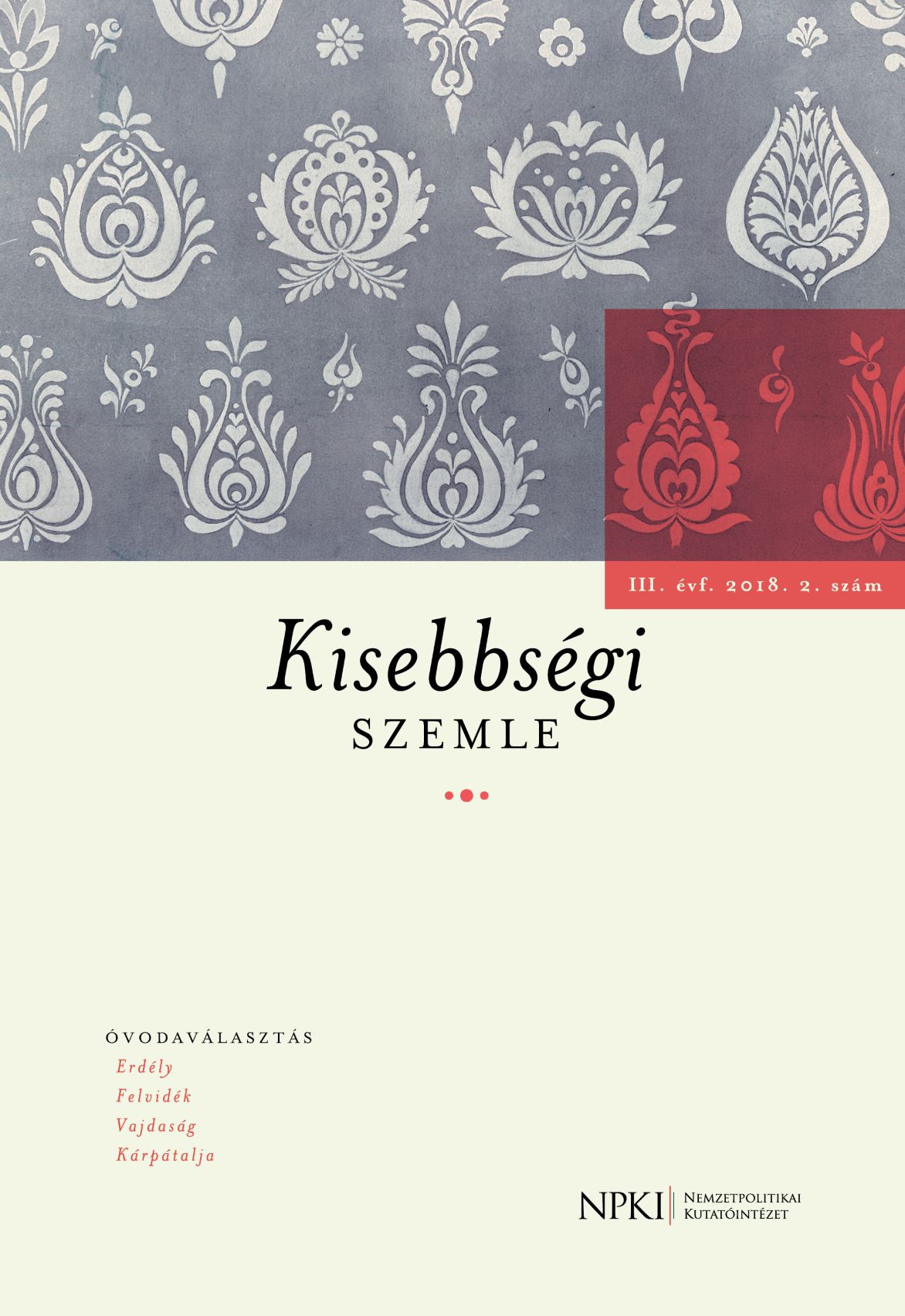Kik választják a magyar óvodákat Kárpátalján?
Who choose minority Hungarian kindergartens in Transcarpathia?
Motivations of Ukrainian and Hungarian parents after the Euromaidan
Author(s): Viktória Ferenc, Anita Nánási-MolnárSubject(s): Politics / Political Sciences, Politics, Social Sciences, Education, Sociology, Preschool education, Ethnic Minorities Studies
Published by: Nemzetpolitikai Kutatóintézet
Keywords: Transcarpathia;kindergarten;research;parents motivations;education;
Summary/Abstract: The paper examines the tendencies of kindergarten and school choice in Transcarpathia in the 2017–2018 academic year. Based on 407 questionnaires, the survey points out that the post Euromaidan political and economic crisis overwrites the actual nationalist discourses in the Ukrainian education and language policy: not only parents of Hungarian homogeneous marriages choose Hungarian kindergartens and schools, but also their counterparts of ethnically heterogeneous and Ukrainian homogeneous marriages follow the same strategy. Generally speaking, the main reasons behind choosing Hungarian kindergartens are the better quality of the pedagogic work and the more sympathetic personnel. However, motivations differ according to the nationality of the parents: Ukrainian families would like that their children learn the Hungarian language, ethnically mixed pairs choose according to inner and outer quality aspects of the kindergarten, while for the Hungarian parents the most important thing is to prepare their children for the Hungarian-medium school. The participants – parents of children in kindergarten – were also asked about the approaching school choice. As the results show, 90% of them will remain in the minority Hungarian education system, but 10% plan to choose Ukrainian-medium schools. Among families with one or two older, school-aged children we noticed a change: these families are less likely to choose Ukrainian-medium school for their younger children than previously.
Journal: Kisebbségi Szemle
- Issue Year: 3/2018
- Issue No: 2
- Page Range: 87-111
- Page Count: 25
- Language: Hungarian

